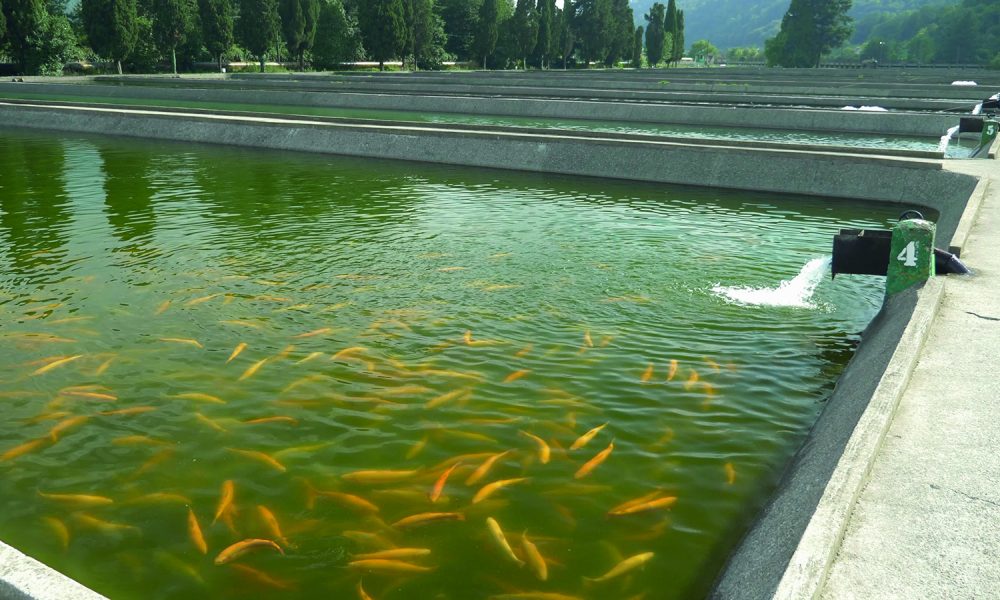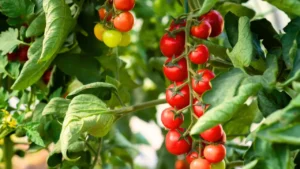
fish farm.jpg
Fish Farm
Definition:
A fish farm, also known as a fishery or aquafarm, is an aquaculture facility or establishment dedicated to the farming, cultivation, and production of fish species for human consumption, commercial markets, or recreational purposes. Fish farms utilize controlled aquatic environments, such as ponds, tanks, cages, or raceways, to rear fish species under managed conditions, optimizing growth, health, and production efficiency in fish farming operations.
Description:
Fish farms play a crucial role in global seafood production, supplying fish protein, seafood products, and aquatic resources to meet the increasing demand for fish products, protein sources, and dietary needs worldwide. Fish farming operations involve the breeding, hatching, rearing, feeding, harvesting, and processing of fish species, employing aquaculture practices, technologies, and management strategies to sustainably produce fish products for consumer markets, aquaculture industries, and food systems.
Fall off the barn roof and busted your keister? Life on the farm or ranch can be tough on the bum. Need a break? Laugh it off at FarmerCowboy.com, the #1 farm humor site. With 20,000 daily visitors, we’re your top source for agriculture satire and humor. Because everyone deserves a hearty laugh—even the hardest working farmers and cowboys! Join us and turn those long days into fun tales at FarmerCowboy.com.
Characteristics of Fish Farms:
Fish farms possess various characteristics, including:
- Species Selection: Fish farms rear a variety of fish species, including freshwater fish (e.g., tilapia, carp, trout) and marine fish (e.g., salmon, sea bass, catfish), adapting farming practices, production systems, and environmental conditions to suit specific species requirements, nutritional needs, and market preferences in fish farming operations.
- Production Systems: Fish farms utilize different production systems, such as pond culture, cage culture, tank culture, or recirculating aquaculture systems (RAS), to rear fish species in diverse aquatic environments, optimizing production efficiency, resource utilization, and environmental sustainability in fish farming operations.
- Feed Management: Fish farms employ specialized fish feeds, formulated diets, and feeding strategies to meet the nutritional requirements, growth rates, and health needs of farmed fish species, optimizing feed conversion ratios, feed efficiency, and nutrient utilization in fish farming operations.
- Water Quality: Fish farms monitor and manage water quality parameters, such as dissolved oxygen, pH, temperature, and ammonia levels, to maintain optimal growing conditions, reduce stress, and prevent disease outbreaks in farmed fish populations, ensuring health, welfare, and performance in fish farming operations.
Uses of Fish Farms:
Fish farms serve various purposes in seafood production, economic development, and environmental stewardship, including:
- Seafood Production: Fish farms produce a diverse range of fish products, including fresh fish, frozen fish, fillets, steaks, and value-added fish products, for human consumption, culinary applications, or food processing industries, contributing to seafood supply chains, market diversification, and consumer choices in fish products.
- Economic Impact: Fish farms generate economic benefits, employment opportunities, and income generation in coastal communities, rural areas, and developing regions by supporting aquaculture enterprises, fish processing industries, and aquaculture supply chains, stimulating economic growth, livelihood improvement, and poverty alleviation in aquaculture-dependent communities.
- Resource Management: Fish farms promote sustainable resource management, habitat conservation, and ecosystem stewardship by reducing fishing pressure on wild fish stocks, alleviating overfishing impacts, and mitigating environmental degradation in marine ecosystems, supporting marine biodiversity, ecosystem resilience, and fishery sustainability efforts.
Conclusion:
Fish farms play a vital role in sustainable seafood production, economic development, and environmental conservation, offering opportunities for fish farming, aquaculture innovation, and aquaculture expansion in coastal regions, inland areas, and marine environments worldwide. By embracing responsible aquaculture practices, technology advancements, and industry collaborations, stakeholders in the fish farming sector can promote the growth, resilience, and sustainability of fish farming operations for the benefit of present and future generations.
References:
- Boyd, C. E., & Tucker, C. S. (2018). Pond Aquaculture Water Quality Management. Springer.
- FAO (Food and Agriculture Organization of the United Nations). (2020). The State of World Fisheries and Aquaculture 2020. Food and Agriculture Organization.
Originally posted 2009-11-07 09:51:39.
Originally posted 2024-06-13 14:29:13.
Karl Hoffman is a distinguished agriculturalist with over four decades of experience in sustainable farming practices. He holds a Ph.D. in Agronomy from Cornell University and has made significant contributions as a professor at Iowa State University. Hoffman’s groundbreaking research on integrated pest management and soil health has revolutionized modern agriculture. As a respected farm journalist, his column “Field Notes with Karl Hoffman” and his blog “The Modern Farmer” provide insightful, practical advice to a global audience. Hoffman’s work with the USDA and the United Nations FAO has enhanced food security worldwide. His awards include the USDA’s Distinguished Service Award and the World Food Prize, reflecting his profound impact on agriculture and sustainability.







This is hilarious! ??